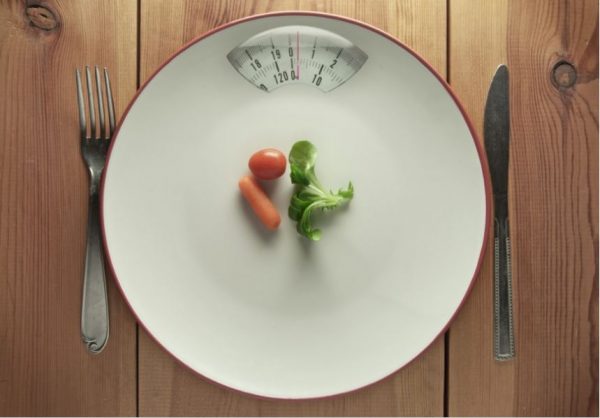- Dieting isn’t for everyone: Not just in terms of you not achieving your desired result, but dieting isn’t recommended to just everyone. With the exception of severe cases such as morbid obesity, no one under the age of 18 should diet, actually some doctors recommend actually waiting until 21. During the adolescent period, the body undergoes a lot of hormonal changes that affect everything from metabolism to weight. Until these hormones level out in impending adulthood, teenagers, early young adults and children are not recommended to diet.
- Not eating: Starving oneself is the easiest way to lose weight and has the fastest results but it’s bad for you, not just because it starves your body of necessary nutrients but also because it backfires: you gain back all the weight you lost and more. The human body was made to adapt in line with an ever changing environment- when you don’t eat for a prolonged period of time: two or three days, your body goes into ‘Starvation Mode’. Rather than breaking down fat, it breaks down your muscles for protein so as to store energy because it’s not entirely sure when food will be available again. The effect of this doesn’t really kick in- you stop eating, you lose weight but the second you eat again, starvation mode reveals itself. The normal process of consumption is simple: the fats are broken down for energy and any excess is stored but in starvation mode, none of the fat is broken down and all of it stored. As your body is eating, your muscles and is saving the fat for future energy use. The body doesn’t leave starvation mode until it’s sure it has a continuous source of food. That can be up to a week or a month. Not eating or crash dieting is the worst advice not only because it makes you gain weight but because it triggers a cycle: you notice your gained weight and starve yourself again, your body goes into starvation mode and you gain weight. And the cycle repeats itself over and over.

- Cutting down: Dieting isn’t about cutting down on portions although that does help. Dieting is more about the quality than the quantity of food you eat. A vegetarian who eats three salads for breakfast is bound to be healthier than a person who eats a hamburger and fries for breakfast. Make sure all your meals contain:
- -Carbohydrates
- -Protein
- -Fruits and vegetables
- -Dairy
In equal and appropriately sized amounts and you’re bound to lose weight. Avoid fatty or oily foods and this will improve your overall health.

- Calorie counting: The myth of calories counting lies in making sure you eat the recommended amount of calories every day, women having 2300 calories and men 2500 calories. However, this is the general medical recommendation not taking in the specifics of the individual, factors such as occupation, age and activity rate can affect how many calories you’re recommended. A runner training for the Olympics and an accountant with a sit-down desk who works 9 hours a day can’t possibly need the same calories per day. You can find out your specific recommended daily calorie intake on various internet websites.
- What truly defines healthy? Dieting is often misinterpreted as losing weight for superficial purposes to achieve a “skinny” physique. But “skinny” isn’t healthy. What anyone dieting should aim for is a “healthy” physique. Luckily it’s 2016 and the beauty standards have changed: people are no longer required to be skinny, curvier and healthier shapes are being accepted and advocated. The aim for most is now healthy skinny: being mildly underweight. This is better than say the heroin chic of the 90s where the desired shape was rail thin but it’s still wrong. A healthy weight is between 50-60 kilograms but this is entirely dependent upon other factors such as height and luckily they’ve developed a way to calculate this: the body mass index or BMI is a way to truly determine if you are healthy.

- When it comes to losing weight, exercise matters more than food ever could. The law of dieting lies in calories in and calories out: as long as the calories you take in are less than the calories that you burn off exercising you will lose weight. This doesn’t allow for a 3000 calorie diet and lost of exercise, while you would lose weight it would affect your health in the long term. But exercising and calorie planning are the easiest, fastest and smartest way to lose weight and the best part: it’s all up to you. You don’t need an Atkins meal schedule taped to your fridge or do your crash diet hundred crunches a day on the floor of your office. You decide how to plan your routines and what you eat.
- The “Cheat Day”. Everyone needs a break now and then and cheat days function for that. Despite popular opinion taking a break doesn’t derail you from your objective altogether, psychologists have shown it strengthens it instead. A German study showed that those that went on a diet five days a week and had two cheat days for three months lost more weight than a group that went cold turkey. The latter group complained of giving into sudden urges and weeks of breaking the diet. Plan your breaks and you won’t stray.


